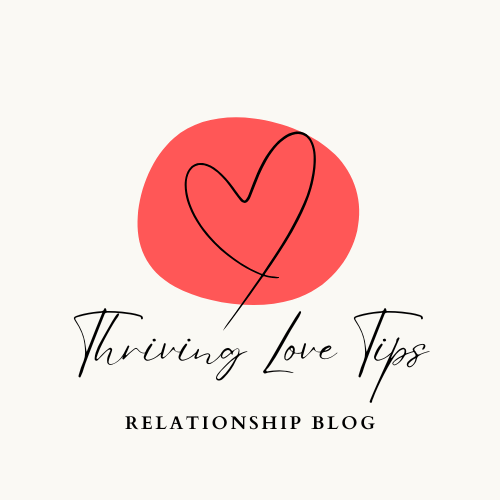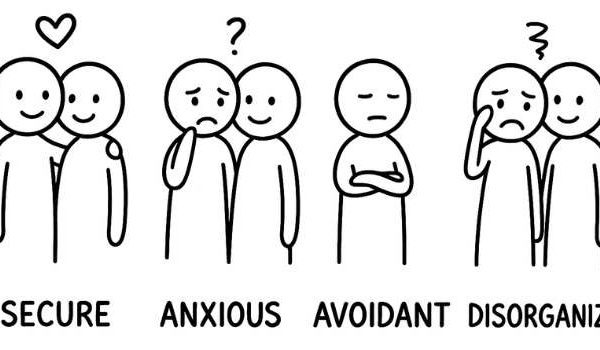Marriage is supposed to be one of the most important decisions you’ll ever make, yet somehow we often approach it with less thought than we’d give to buying a car or choosing a career path. We get swept up in the romance, the wedding planning, the excitement of being engaged, and we forget that marriage isn’t just about the ceremony or the honeymoon. It’s about building a life with another human being, day after day, year after year, through all the beautiful moments and all the incredibly hard ones too.
The problem is that when you’re in love, when everything feels magical and right, it’s easy to ignore the difficult questions. You don’t want to be the person who ruins the romance by bringing up money troubles or asking about conflict styles. You convince yourself that love conquers all, that the details will work themselves out, that you’ll figure things out together as you go. And sometimes that’s true. But more often, couples who skip the hard conversations before marriage find themselves blindsided by fundamental incompatibilities that could have been addressed or at least acknowledged before legally binding their lives together.
These ten questions aren’t about doubting your relationship or looking for reasons not to get married. They’re about going into marriage with your eyes wide open, knowing exactly who you’re marrying and being honest about whether you’re truly ready for this particular forever. If you can answer these questions honestly and you still want to marry this person, you’re building on a foundation of reality rather than fantasy. And that’s the kind of foundation that actually lasts.

Question 1: Have We Successfully Navigated Conflict Together?
It’s easy to love someone when everything is going smoothly. The real test of a relationship is how you handle disagreement, hurt feelings, and genuine conflict. Before you marry someone, you need to have fought with them, not just once, but multiple times, and successfully resolved those conflicts in ways that left you both feeling heard and respected.
Dr. John Gottman, who has studied thousands of couples, can predict with over 90% accuracy whether a couple will divorce based on how they fight. The presence of what he calls “The Four Horsemen,” criticism, contempt, defensiveness, and stonewalling, are major red flags. If your conflicts consistently involve these patterns, marriage won’t fix them. It will only make them worse.
Ask yourself: When we disagree, can we both express our perspectives without attacking each other? Do we take responsibility for our parts in conflicts, or do we just blame each other? Can we repair after a fight, or do we hold grudges? Do I feel safe expressing concerns, or do I walk on eggshells to avoid upsetting them? Your answers will tell you a lot about whether you’re ready to weather a lifetime of inevitable disagreements together.
Question 2: Do We Share the Same Vision for Our Future?
You need to know where this person sees their life going and whether that vision aligns with yours. Do you both want kids, or does one of you feel ambivalent? Where do you want to live, and are you both willing to make that happen? What does success look like to each of you? What kind of lifestyle do you hope to build?
These aren’t questions with right or wrong answers, but they need to be compatible answers. If one of you desperately wants children and the other is firmly child-free, no amount of love will bridge that gap. If one of you dreams of living abroad and the other is committed to staying near family, you need to address that before marriage, not after.
Relationship therapist Esther Perel emphasizes that “couples need a shared narrative about their future. You don’t have to want identical things, but you need to want things that can coexist.” Talk about your five-year plans, your ten-year dreams, your retirement hopes. Make sure you’re building toward compatible futures, not just enjoying a compatible present.
Question 3: Have I Seen Them Handle Real Adversity?
Anyone can be a great partner when life is easy. The question is: who are they when things fall apart? Have you seen them deal with job loss, family crisis, illness, grief, or major disappointment? How do they handle stress? Do they become withdrawn, angry, or volatile? Or do they face challenges with resilience and reach out for support?
Before marriage, you need to know whether this person will be a partner during hard times or an additional problem. You need to see whether they can show up for you when you’re struggling, and whether you can show up for them. You need to know if they cope with difficulty in healthy ways or through destructive patterns like substance abuse, rage, or emotional shutdown.
If you haven’t weathered any real storms together yet, you’re essentially marrying a stranger. The person someone is during a crisis is often who they really are. Make sure you know and can accept that person before you sign the papers.
Question 4: Can We Talk Openly About Money?
Money is one of the top sources of conflict in marriage, yet many couples avoid detailed financial conversations before getting married. You need to know your partner’s relationship with money, their debt situation, their spending habits, and their financial goals. Are they a saver or a spender? Do they have student loans or credit card debt? What are their expectations about how you’ll handle finances together?
Financial planner Ramit Sethi emphasizes that “couples need to be on the same page financially, or at least willing to find a middle ground. When one person wants to save everything and the other wants to spend freely, resentment builds quickly.”
Have honest conversations about current financial situations, credit scores, spending patterns, and money values. Discuss how you’ll handle joint versus separate accounts, who will manage the bills, how you’ll make major financial decisions, and what your retirement planning looks like. These might not be romantic conversations, but they’re crucial ones.
Question 5: Do I Feel Like Myself Around Them?
This might be the most important question of all. In a healthy relationship, you should feel more like yourself, not less. Can you express your real opinions without censoring yourself? Can you pursue your interests without guilt or pushback? Do you feel encouraged to grow, or do you feel pressure to stay small so your partner doesn’t feel threatened?
Dr. Alexandra Solomon, clinical psychologist and author, notes that “in healthy partnerships, both people maintain their sense of self while also being deeply connected. If you’ve lost yourself in the relationship, if you’ve abandoned your friends, interests, or values to maintain peace or please your partner, that’s a red flag.”
Ask yourself: Have I changed who I am to make this relationship work? Am I pretending to like things I don’t like or believe things I don’t believe? Am I hiding parts of myself because I’m afraid of judgment or rejection? If the answer to any of these is yes, you’re not ready to marry this person. You might need to work on the relationship, or you might need to acknowledge that this isn’t the right match.
Question 6: How Do They Treat Other People?
Pay close attention to how your partner treats people who can’t do anything for them: waiters, customer service workers, their family members, people they disagree with politically, and their exes. This behavior is a much better predictor of how they’ll eventually treat you than how they treat you during the honeymoon phase.
Are they kind and respectful to everyone, or only to people they need something from? Are they able to disagree with people without being cruel or dismissive? Do they speak badly about everyone in their life, or do they have genuine, healthy relationships with others? How do they talk about their exes? If every ex is “crazy” or terrible, that’s often a sign that they don’t take responsibility for their role in relationship failures.
Dr. Ramani Durvasula points out that “how someone treats others, particularly those with less power, is one of the best indicators of their character. If they’re charming to you but rude to the waiter, you’re seeing their true self. The charm is the performance.”
Question 7: Are We Sexually Compatible?
Physical intimacy matters in most marriages, and sexual incompatibility can create serious problems. Before marriage, you need to have honest conversations about sex: frequency, preferences, boundaries, and what intimacy means to each of you. Do you have similar desire levels? Are you both satisfied with your sexual relationship? Can you communicate openly about what you want and need?
Sex therapist Dr. Ian Kerner emphasizes that “sexual compatibility isn’t about having identical desires. It’s about being able to communicate about sex, to negotiate differences, and to prioritize each other’s pleasure and satisfaction.” If you can’t talk openly about sex now, it won’t get easier after marriage.
This also includes discussing potential challenges. What if health issues or aging affect your sex life? What if kids change your intimacy patterns? What if one person’s needs or desires change over time? These conversations might feel awkward, but they’re necessary for building a realistic understanding of sexual compatibility.
Question 8: Do I Trust Them Completely?
Trust isn’t just about fidelity, though that’s certainly important. It’s about trusting that they’ll show up for you, keep their promises, respect your boundaries, and have your best interests at heart. Do you trust them with your vulnerabilities? Do you trust them with your money? Do you trust that they’ll be faithful? Do you trust that they’ll be there when you need them?
If you find yourself checking their phone, questioning where they are, or doubting their word, that’s not a solid foundation for marriage. Either the trust issues stem from their untrustworthy behavior, which needs to be addressed before marriage, or they stem from your own insecurities or past trauma, which also needs to be worked through before you commit.
Clinical psychologist Dr. Jennifer Kunst notes that “trust is built slowly through consistent, reliable behavior. If you’re still questioning whether you can trust this person, you’re not ready to marry them.” Give yourself time to build genuine trust through experience, not just hope.
Question 9: Have We Discussed How We’ll Handle Challenges Together?
Marriage will throw challenges at you: potential infertility, aging parents, health crises, job losses, mental health struggles, and countless other difficulties. Before you marry, discuss how you’ll handle these potential challenges. What happens if one of you can’t work? What if one of you becomes seriously ill? What if you struggle with infertility? How will you handle aging parents who need care?
These conversations aren’t about predicting the future or catastrophizing. They’re about understanding whether you and your partner are a team that will face difficulties together or whether you’re likely to turn on each other when stress hits. Do they see challenges as something to face together, or does adversity make them withdraw or blame?
Discuss big potential issues like infidelity, addiction, or growing apart. What would constitute a dealbreaker? What would you be willing to work through? These aren’t pleasant conversations, but having them establishes expectations and demonstrates maturity about what marriage actually involves.
Question 10: Do I Want to Marry This Person, or Do I Just Want to Be Married?
Finally, be brutally honest about whether you want to marry this specific person or whether you’re more in love with the idea of marriage, with the wedding, with reaching a life milestone, or with not being alone. Are you getting married because you genuinely can’t imagine a better life partner, or because you’re at an age where you feel you should be married, because your friends are all getting married, or because you’ve already invested so much time in this relationship?
Psychologist Dr. Eli Finkel emphasizes that “the best reason to marry someone is because your life is genuinely better with them in it than it would be without them, and you can honestly say you’d choose them again if you had to start over.”
Ask yourself: If I met this person today, knowing everything I know now, would I still pursue a relationship with them? Am I settling because I’m afraid I won’t find anyone better? Am I marrying them because I love who they are, or because I love who I hope they’ll become? Only the first answer is a good reason to get married.
Read also The History and Meaning of Wedding Rings
The Bottom Line
Marriage is beautiful, challenging, rewarding, and hard. It’s a daily choice to love someone even when they’re difficult, even when you’re tired, even when the romance has faded into a comfortable routine. But it’s also one of the most important decisions you’ll ever make, and it deserves serious thought and honest conversation.
If you can answer all ten of these questions honestly and you still want to marry this person, that’s a very good sign. You’re going into marriage with realistic expectations, genuine compatibility, and eyes wide open to who your partner really is. That’s the kind of foundation that can support a lifetime of partnership.
But if these questions reveal incompatibilities, trust issues, or fundamental problems, pay attention. Love alone isn’t enough to make a marriage work. You also need compatibility, shared values, mutual respect, and the ability to weather life’s challenges together. Don’t marry someone hoping they’ll change or believing that marriage will fix your problems. Marry someone you genuinely know, trust, and want to build a life with, flaws and all. That’s when marriage becomes not just a romantic gesture but a real partnership built to last.




